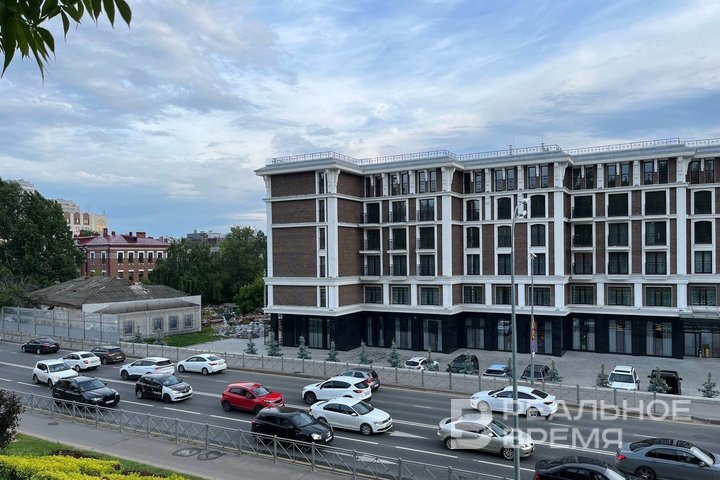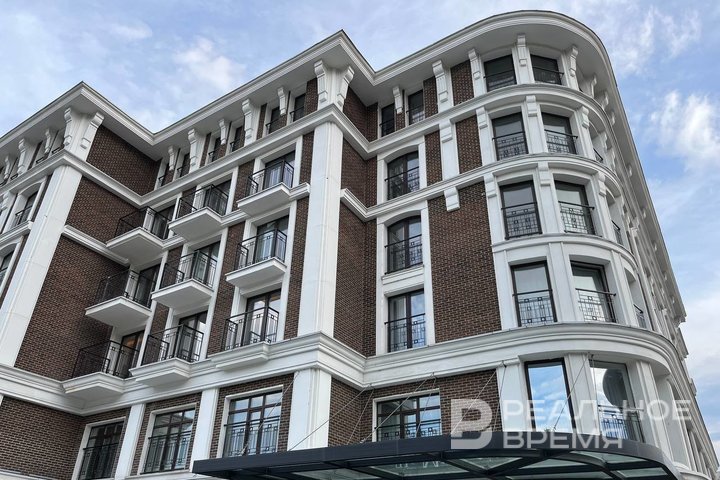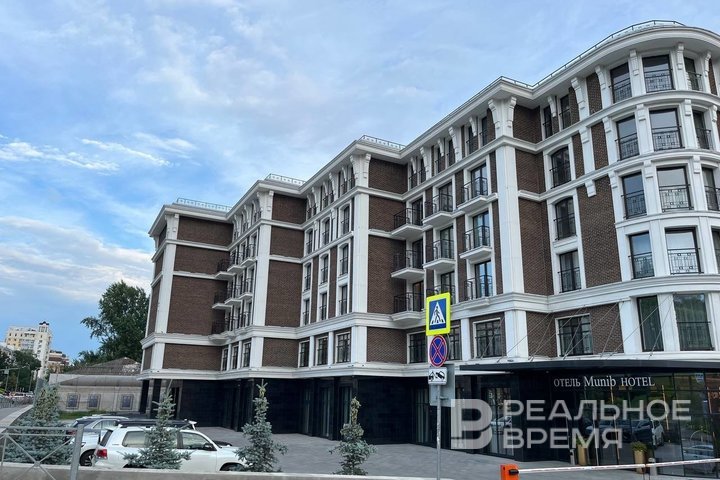Bulаt Shakirov to open Tea Museum in a 300-year-old house near his hotel in central Kazan
The businessman aims to revive an 18th-century civil architecture monument — a tea weighing factory

The owner of Kazan company Stroygrupp-M, Bulat Shakirov — heir to the hotel and construction business founded by honored energy specialist of Tatarstan Munib Shakirov — plans to open a Tea Museum. The establishment will operate next to his six-storey hotel in central Kazan, opposite the Old Believers’ church. It is an old one-storey brick building at 4 Staraya Street — a monument of civil architecture built at the turn of the 17th and 18th centuries. The building, protected as a cultural heritage site (OKN), came into the Shakirov family’s possession along with the plot purchased at auction, on which the Munib Hotel was built. Now the company must restore the historic mansion and adapt it for modern use. Read the details in a report by Realnoe Vremya.
Sold for one ruble, bought for 22 million rubles
The historic house, more than 300 years old, was purchased by Bulat Shakirov at auction in 2023. The building was originally put up for sale by the Kazan Committee for Land and Property Relations under a programme for selling cultural heritage sites in poor condition for one ruble. The house is one of the few surviving monuments of civil architecture in Kazan dating from the turn of the 17th to 18th centuries. Before the Revolution, it housed the Sadovnikov tea weighing factory; later, the building was converted into residential use, and only in 2020 were its residents relocated. In 2021, the building was conserved — it was in an emergency condition — and then put up for auction. The house has an area of 263.2 square metres, along with a 1,200 square metre plot of land that came with it to the Shakirov family
The monument was sold at auction for 22 million rubles, with 10 participants competing for it. Both companies and private individuals sought to acquire the historic house in the very centre of the city. It was sold for 4.3 times its initial estimated value of 5 million rubles. The highest bid was made by Bulat Shakirov’s company, Stroygrupp-V. Shakirov is the heir to the construction and hotel business founded by the late Munib Shakirov, an honoured energy specialist of Tatarstan from the Alkeyevsky District, who passed away in October 2021. The businessman also owns the Hotel-Art on Ostrovskogo Street. In 2023, his company completed and commissioned a six-storey hotel at 8 Ulyanova-Lenina Street, located adjacent to the historic monument.

The hotel has been under construction since 2017. Its design was discussed eight times and approved on the condition that architectural solutions would be refined and guarantees provided for the landscaping of the surrounding area — particularly the access to the oldest civil building in Kazan on the site: the one-storey brick house No. 4 on Staraya Street, which was built three centuries ago.
In the state historical and cultural expertise report on the project documentation conducted in May 2023, it was stated that the new construction would not harm either the physical condition or the perception of the cultural heritage site on the neighbouring plot — the residential house at 4 Staraya Street — nor its preservation. However, this expertise was carried out after the hotel had already been completed.
Under federal law, the new owner is obliged to restore the cultural heritage site purchased at auction by 30 March 2030.
“Most likely, it will become a museum — perhaps a museum of the tea weighing factory”
As Bulat Shakirov told a correspondent from Realnoe Vremya, the restoration of the historic mansion is being carried out in stages. At the first stage, specialists carried out essential emergency repairs costing 3 million rubles.

Currently, he said, a full restoration project is being developed — restoring the house will require significant investment, no less than 65 million rubles. The peculiarity of the process is that restoration work must be carried out by a licensed organisation using special materials and with great care.
The investor plans to turn the house into a tourist attraction, although he has not yet decided exactly what it will be. For now, the restoration is planned for residential use.
“It will be a tea house, a museum where the history of tea will be told and visitors will be offered the opportunity to taste different varieties of tea. In other words, guests will be able to come and have tea there,” the owner said, without specifying the exact amount of investment in the project.
Visiting the site, a correspondent from Realnoe Vremya found the cultural heritage site to be in an emergency condition: the territory was littered with construction debris, overgrown with weeds, the roof was leaking, windows were broken, and the walls damaged. The state of the house sharply contrasts with the appearance of the modern hotel next door. A representative of the owner explained that only temporary emergency repairs are currently underway at the site, while full restoration is still to come.

From a tea weighing factory to hospital
The building is one of the few surviving monuments of civil architecture of the Kazan Governorate from the 18th century. There are different interpretations of its purpose: one version holds that at the end of the 19th century it housed the Sadovnikov tea weighing factory, while another claims that it was once a small hospital. According to the owner of the site, there is even a version that Yemelyan Pugachev, the leader of the Peasant War of 1773–1775, stayed in the building.
The one-story brick house features high ceilings and an entrance group. Originally, it was a residential building before it became a tea weighing factory. Later, communal apartments were established in the building. The house has been under state protection since 1998. After the resettlement of its residents, the building remained unused.
Cultural heritage sites are sold specifically so that new owners undertake restoration and rehabilitation of the buildings, with the aim of attracting tourists and integrating the site into the region’s economy. They are sold at low prices because they require urgent repairs. Owners are obliged to restore the monuments to their original appearance within five years; otherwise, the property is returned to the state.